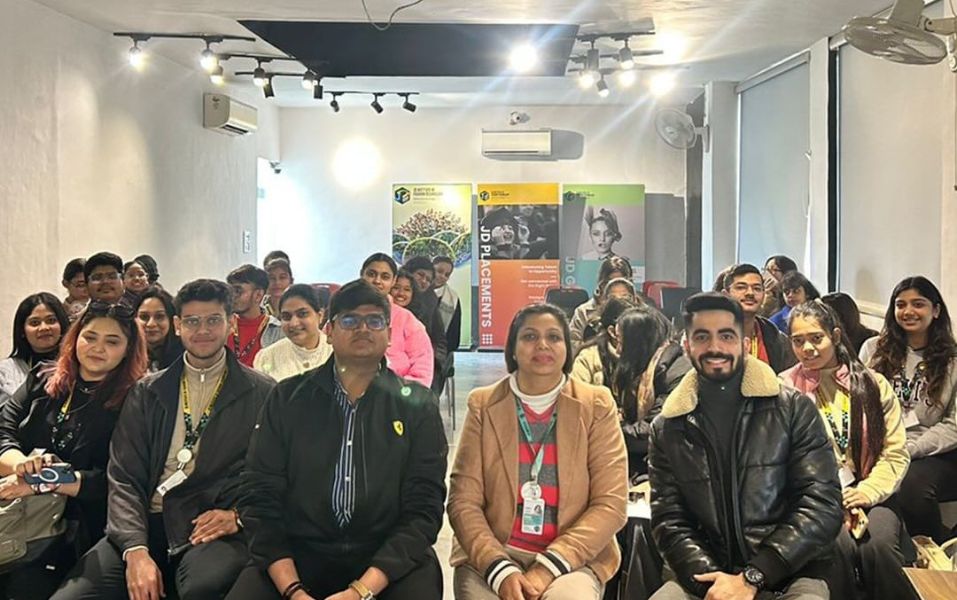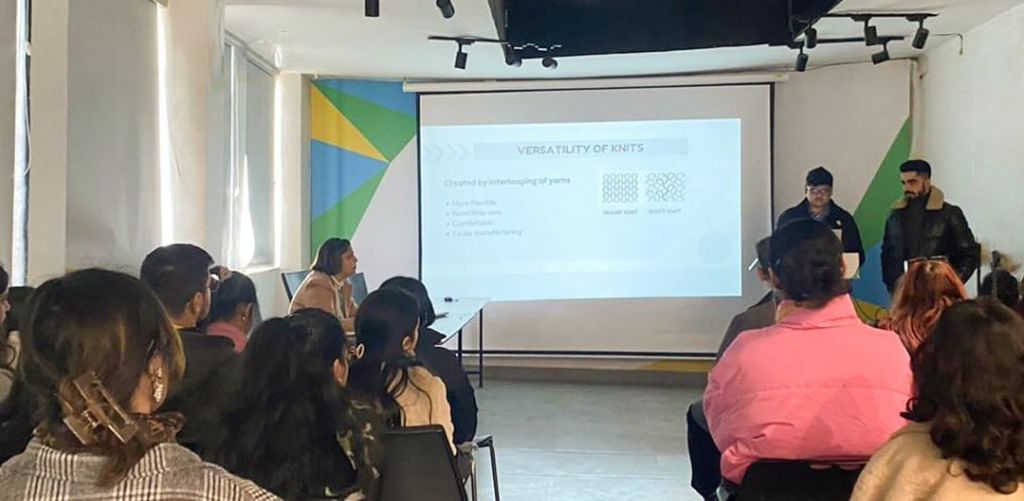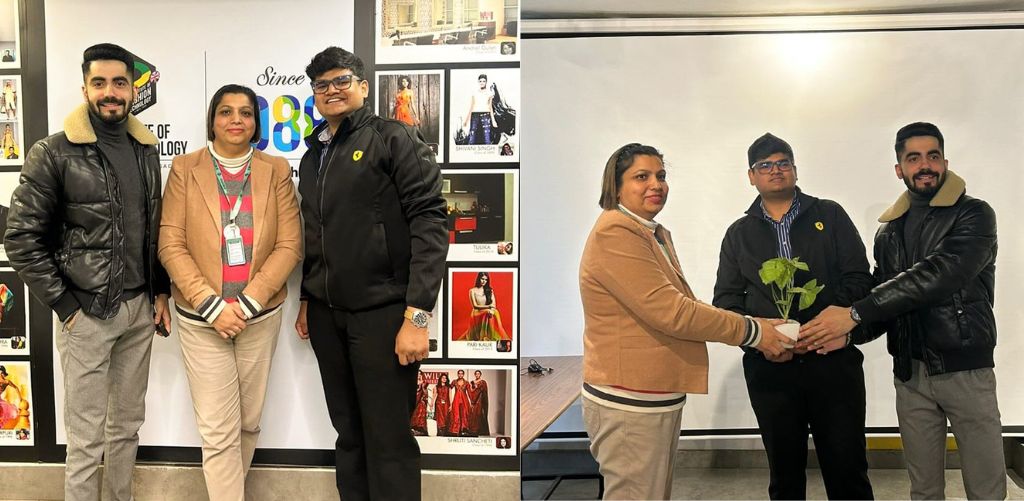

The JD Institute of Fashion Technology is a leading institution that drives fashion innovation and creativity, constantly challenging limits and motivating the future designers. The institute conducted a session that had a profound impact on its students. The workshop, led by Texongo CEO Aman Gupta, explored the complex realm of knit fabric, combining artistic expression with environmentally conscious practices. This comprehensive encounter served as a demonstration of the influential role that education plays in determining the future of the fashion industry.
The fashion industry has widely favoured knit fabric due to its adaptability, ease of use, and design appeal. The workshop commenced by delving into the numerous and diverse options that knit fabric provides. Knit fabric’s versatility and flexibility make it an essential component in the toolset of every fashion designer, whether they are creating casual wear or high-end couture. Students were acquainted with diverse varieties of knit materials, each possessing distinct characteristics and conceivable applications.

One of the workshop’s prominent highlights was exploring the possibility of fibre fusion. This method entails combining various fibres to produce distinct fabric characteristics, hence improving performance, longevity, and visual appeal. Students were educated on the process of combining natural and synthetic fibres to create garments that possess both aesthetic appeal and practicality while also being environmentally friendly.
The JD Institute of Fashion Technology workshop emphasised sustainability, a crucial aspect of modern fashion education. Aman Gupta emphasised the importance of incorporating sustainable techniques into knitwear design. The programme emphasised several methods by which designers may contribute to a more sustainable economy, such as procuring eco-friendly fibres and reducing waste in the manufacturing process.
Students were motivated to reflect on the life cycle of their ideas, taking into account aspects such as longevity, recyclability, and biodegradability. This comprehensive approach to design ensures that sustainability is not an afterthought but an essential component of the creative process. Through the adoption of sustainable stitching techniques, students gain the ability to positively impact the environment through their artistic pursuits.
The JD Institute of Fashion Technology’s workshop acted as a catalyst for creativity and long-term viability, surpassing a mere educational experience. The workshop provided students with the necessary information and abilities to responsibly create by fully engaging them in the art of knitting fabric. Aman Gupta’s profound knowledge and enthusiasm for knitwear motivated students to expand their creative horizons while prioritising a sustainable future.

The workshop delivered a profound and significant perspective that integrated the fascination of knit fabric with the process of combining different fibres, the exploration of knitting centres across the world, and the dedication to promoting sustainability. We are grateful to Texongo CEO Aman Gupta, who showcased creativity, innovation, and a responsible approach, inspiring young fashion designers to contribute to a more sustainable and promising future.